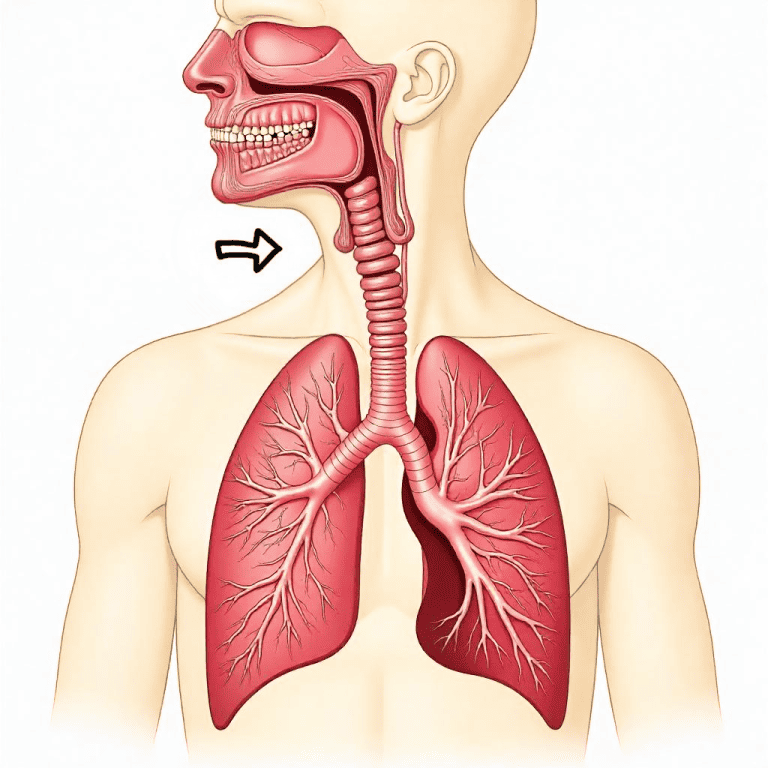Welcome to our online trachea quiz! The trachea is a crucial part of your respiratory system, helping you breathe by carrying air to and from your lungs. In this quiz, you’ll learn all about the trachea’s structure and function, as well as how it works with other parts of your body to keep you breathing smoothly.
Test your knowledge on the trachea by answering questions on its location in the body, its role in the respiratory system, and common issues that can affect it.
Whether you’re a biology buff or just curious about how your body works, this quiz is a great way to learn more about this important organ.
So, let’s dive in and see how much you know about the amazing trachea!
Play Trachea Quiz
Instructions
- This quiz is multiple choice.
- Read each question carefully before selecting an answer.
- Choose the best answer for each question.
- You will see the missed questions with correct answers at the end of the quiz.
Quick Facts
- The trachea is a tube in the body that carries air from the throat to the lungs.
- It is also known as the windpipe.
- It is made up of rings of cartilage, which help to keep it open and prevent it from collapsing.
- When you breathe in, air passes through the trachea on its way to the lungs.
- When you swallow, it closes off to prevent food and liquid from entering the lungs.
- It is lined with tiny hairs called cilia, which help to filter out dust and other particles from the air you breathe.
- If it becomes blocked or narrowed, it can make breathing difficult or even impossible.
- Certain conditions, such as croup or asthma, can cause inflammation and narrowing of the trachea.
- If it is damaged, it can be repaired through surgery or other medical interventions.
- Keeping your trachea healthy is important for breathing properly and maintaining good overall health.
Downloads
Study Tips
- Create a study schedule and stick to it.
- Find a quiet and comfortable study environment.
- Remove distractions such as phones and social media.
- Take breaks every 25-30 minutes to avoid burnout.
- Use active studying techniques like summarizing, highlighting, and teaching concepts to someone else.
- Practice retrieval by testing yourself with flashcards or practice quizzes.
- Stay organized with notes, study guides, and resources.
- Stay hydrated and eat brain-boosting foods like fruits, nuts, and whole grains.
- Get enough sleep to improve memory retention and cognitive function.
- Reward yourself for reaching study goals to stay motivated.
